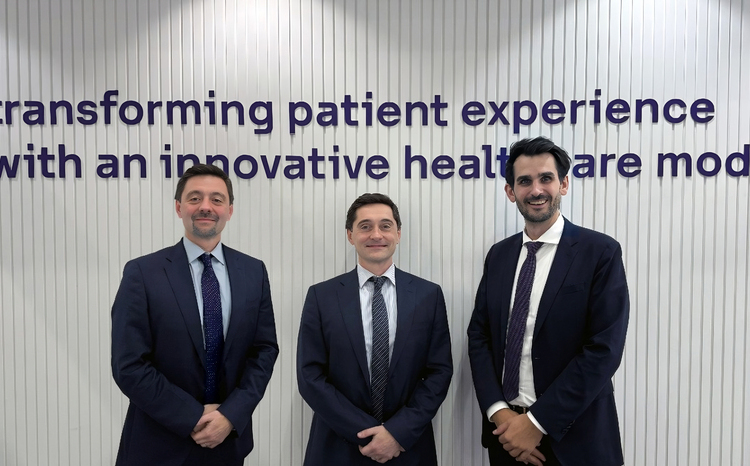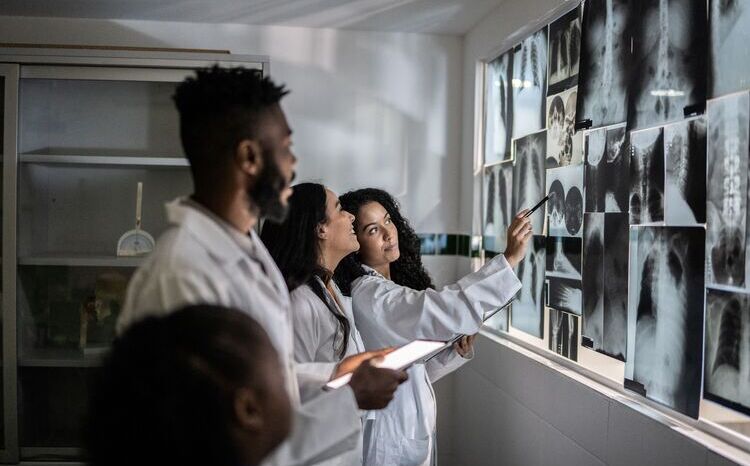Royal Free says Cerner ‘extremely challenging’
- 7 August 2008
Royal Free Hampstead NHS Trust has found the first deployment of the London cluster version of Cerner’s Millennium care records system demanding; with delays in some of its busiest clinics.
Although still in the early days of what it describes as a fairly successful implementation, the trust says in a board paper that the new system, installed in June, has severely strained some clinics and staff members.
“Cerner has had a comparatively successful launch (when compared with other acute trusts) and this is due, to a large extent, to our staff who have been exceptional,” it says. “However, this launch has not been without its problems, some of which were anticipated.”
Over 4,000 staff were trained on the new system as part of the implementation, carried out by local service provider BT.
The report notes while many staff see the advantages of the new software, which offers a path to future CRS clinical functionality, “the additional time needed to place orders, request appointments and to capture the 18-week pathway has resulted in frustration and in some cases delays to clinics.”
The trust says some of the administrative processes now take longer with Cerner CRS than with the old green screen McKesson patient adminsitration system it replaced.
Royal Free has implemented the most complicated version of Millennium yet installed under the National Programme for IT in the NHS; the London Cluster 1 (LC1) version. It includes a patient administration system, Accident and Emergency, surgery, theatres, maternity and order communications.
The report notes that the trust’s Outpatient Appointment Centre has experienced a significant increase in the time taken to process individual appointment bookings.
Difficulties have also arisen due to workflow problems, with the Millennium software not designed to support workflows at the trust.
“There have been significant issues around the administration processes for pre-assessment, waiting list management and the scheduling of theatre lists. Many of the issues identified have been due to a fundamental lack of understanding in relation to the software and workflow processes required.”
According to the trust: “The main area of concern has been where doctors, who run extremely busy clinics, have found it impossible to use the system to its full potential due to time available and the timely response of the Cerner system especially Powerchart.”
A crash programme is now said to be underway by Cerner and BT, the local service provider for London, to speed up Powerchart.
The board paper says that particular problems have been experienced in “booking follow-up appointments, which has been one of the areas proving most challenging to reception staff, due to the length of time it takes for each patient.”
Similarly the “depart process” in A&E is identified as proving particularly cumbersome, being described as “lengthy and complicated”.
The trust also says there have been technical problems “with unexpected crashes to the software occuring in some areas.” Fixes are now being developed to try and improve stability, with daily conferences occuring with Cerner and Citrix, who provide the platform the application runs on, to report on crashes.
Stability is also reported as a problem with the interface between the order communications system included in Millennium, and the trust’s pathology and radiology system, described as “the most complicated the trust has ever built.”
Details of the challenges the CRS implementation has created and how the trust has responded are set out a July board paper by three senior directors at the Royal Free, which reviews the experience of the first two months of operation.
The report says a backlog of data capture built up in June, with 12,000 records requiring updating. The backlog, which also built up in July, has required additional administrative staff be assigned at extra cost to ensure the trust gets paid for the activity it had provided but been unable to record.
Some of these problems shoudl be addressed by new releases of Cerner Millennium scheduled for September and October or November. “It is anticipated that these will deliver far more streamlined processes particularly in relation to booking follow-up appointments…” the board paper says.
As previously reported by E-Health Insider, problems have already been acknolwedged that resulted from staff having to train on a different version of the system to the one they reciewed. In the first few weeks, the helpdesk recieved over 2,500 calls.
The trust told EHI: “With the implementation of any system of the size and complexity of CRS we would expect some teething problems before the new system bedded in.”
In the response to questions on performance problems the trust said: “Senior teams from BT, London Programme for IT and Cerner have been working with the trust’s technical team to identify and resolve some performance issues.
“As a result, several initiatives have been put in place which have improved reliability and ensured that patient care is not compromised. Many of the problems we saw in the early weeks are now resolved.”
The statement went on to add that implementation of such a large complex project “was bound to mean a review of agreed workflows as the system bedded in”. The trust said was “expected” and “planned”.
Links
Royal Free flags training issues
Royal Free go-live with Millennium R1 CRS




